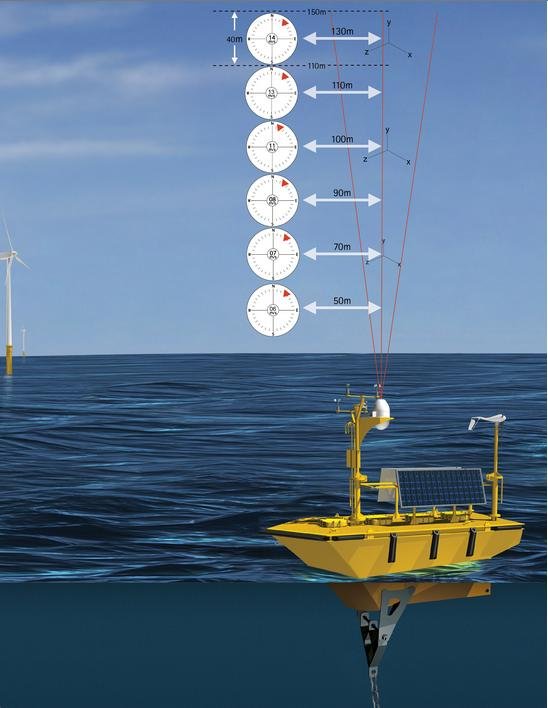An illustration of the buoy used to study the wind above Lake Michigan. The three red lines represent laser beams, which measure wind speed and direction 1,000 times a second. Credit: Michigan Technological University.
HOUGHTON, Mich., June 15 (UPI) -- Lake Michigan is an untapped reservoir of wind energy, say researchers who are studying whether it can be harvested economically and without environmental harm.
Scientists at Michigan Technological University have been gathering data come from a 6-ton floating buoy deployed at three locations in the lake, two near the shoreline and another 35 miles off shore.
Loaded with scientific equipment, the buoy has provided the first direct measurement of wind over the Great Lakes at the height of commercial turbines, a university release reported Thursday.
The buoy is solar and wind powered and has a backup diesel generator, allowing it to run fully automated and gather data for almost a year, researchers said.
"This is really quite an instrument," MTU researcher Guy Meadows said, and the results have been "very interesting."
"In particular, winds measured close to the shoreline were very turbulent, because of the presence of land," Meadows said. "But the farther the buoy was from shore, the more the fluctuations were reduced."
That's vital for wind generation, because less turbulence means more efficient wind turbines and less stress placed on their support structure, the researchers said.
"The Great Lakes in general are very wind rich, second only to the Pacific Northwest," Meadows said. "The question is, how do you capture that energy in an environmentally conscious way? And from an engineering standpoint, how do design equipment that will capture it and survive our most severe weather? These are big challenges."















